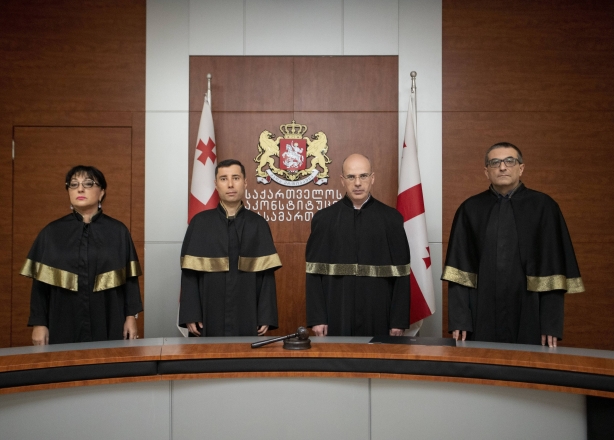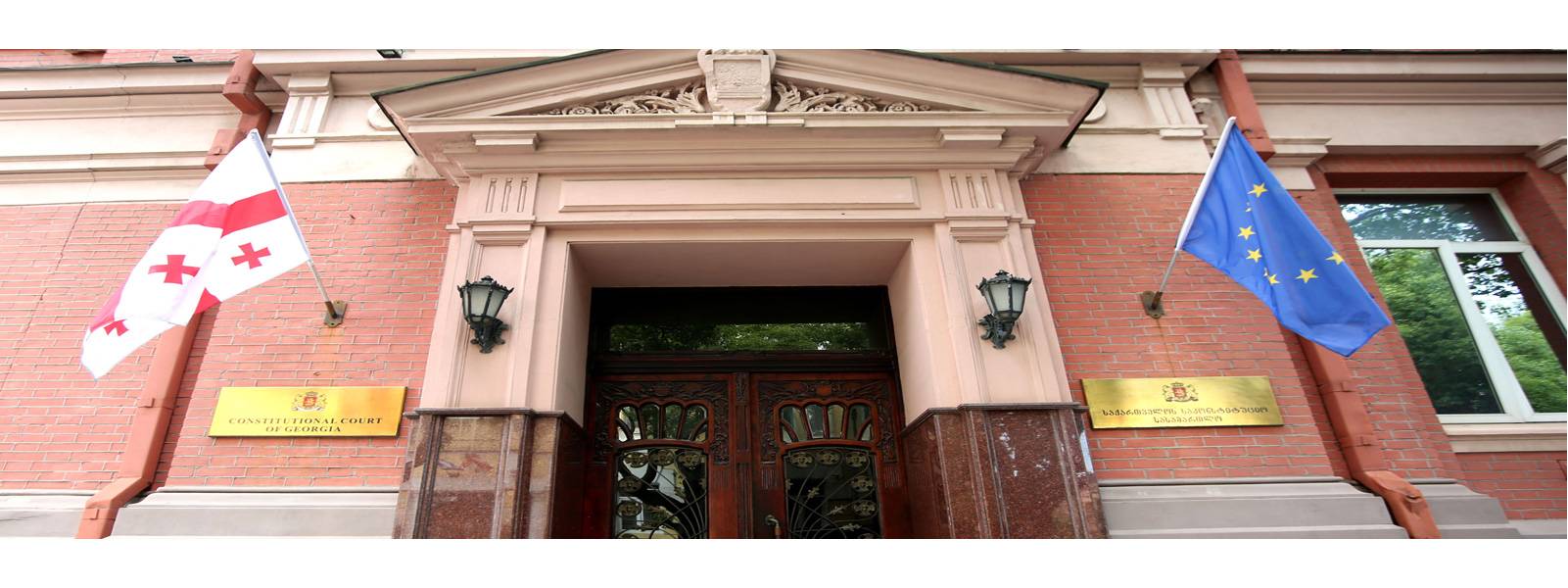The Constitutional Court does not satisfy the Constitutional Claim №1688 (“Shalva Natelashvili vs. the Parliament of Georgia”)
The Constitutional Court does not satisfy the Constitutional Claim №1688 (“Shalva Natelashvili vs. the Parliament of Georgia”)
On November 4, the Constitutional Court of Georgia did not satisfy constitutional claim №1688 (”Shalva Natelashvili vs. the Parliament of Georgia”).
In the disputed case, the Parliament of Georgia prematurely terminated the mandate of Shalva Natelashvili as a member of the Parliament of Georgia due to absence at more than half of the regular sittings during the regular session of the Parliament. According to the complainant, his absence from the parliamentary sittings was due to his boycott of the Parliament. The complainant indicated that the contested decision was made based on political expediency. The Constitution of Georgia does not regulate the issue of premature termination of the mandate of members of the parliament who are in the parliamentary boycott mode, and therefore there is no constitutional norm on the basis of which, in such a case, the mandate of a member of the parliament could be terminated.
According to the respondent, for the purposes of the Constitution of Georgia, the definition of the parliamentary boycott is set by the Rules of Procedure of the Parliament of Georgia, whereby the boycott is defined as a refusal on resolution and deliberation of specific issues at the plenary session by the member of the Parliament due to certain political attitudes and it does not imply the right of the subject to announce an indefinite and, even more so, for the entire term of office, to boycott all sessions of the Parliament and parliamentary activities of the same convocation. In addition, as noted by the respondent, the complainant did not respect necessary procedural requirements set with the Rules of Procedure of the Parliament for announcing the boycott.
The Constitutional Court of Georgia, initially, defined the institutional significance and substance of the Parliament in democratic states, in respect of the status and functions of the Member of Parliament. As noted by the Constitutional Court of Georgia, the Parliament is a constitutional body which with its law-making function reflects political will of the people in various fields of public relations. Furthermore, by controlling the activity of the Executive it forms solid guarantees for proper functioning of the checks and balances between the branches of government.
The Constitutional Court noted that exercising of the above-mentioned functions by the Parliament is impossible on itself without active engagement of the members of the Parliament in the parliamentary activities, since running of democratic political processes and supporting practical realisation of the political will of the society are carried out by application of their free mandate. Apart from this, through non-participation in the parliamentary activity by the members of the Parliament functional capacity of the Parliament and efficient execution of the functions granted with the Constitution are endangered, which is negatively reflected on the functioning of representative and pluralist democracy, as well as on wide range of public relations.
The Constitutional Court with the aims of evaluating constitutionality of the disputed resolution defined the parliamentary boycott as an absence with good reasons and their constitutional legal scope. The Court indicated that the parliamentary boycott in the democratic state in certain cases is as a permissible mechanism political struggle in favour of public interests, which is used by political actors from a strategic and tactical point of view to highlight certain issues or to demonstrate their high-profile nature, although it does not imply the right of the member of the Parliament not to participate in any session based on the right to boycott during their entire term. Such a broad understanding of boycott for the purposes of the Constitution is not established by the constitutional order.
The Constitutional Court noted that for the purposes of the Constitution of Georgia, extending the right to boycott to the entire term of office of the member of Parliament will damage the idea of the pluralist parliament, hinder the circulation of different opinions in the parliamentary life, the adoption of legislation under the conditions of exchanging competitive and different opinion, which in itself will be negatively reflected on the electorate’s rights, principle of democracy and on the constitutional principle of public sovereignty. Hence, the Constitutional Court determined that the Rules of Procedures of the Parliament of Georgia establish a fair balance between the right of a member of the Parliament to express a political boycott and important public interest, and therefore, the decision upon pre-term termination of authority of the Member of the Parliament does not contradict the requirements of the Constitution of Georgia.
Subject of Dispute: Constitutionality of the Resolution №1362-VIIIms-XMP issued on February 15, 2022 by the Parliament of Georgia upon “Pre-term termination of the authority of the Member of Parliament to Shalva Natelashvili” in relevance with the sub-paragraph “c” of the Paragraph 5 of the Article 39 of the Constitution of Georgia.


